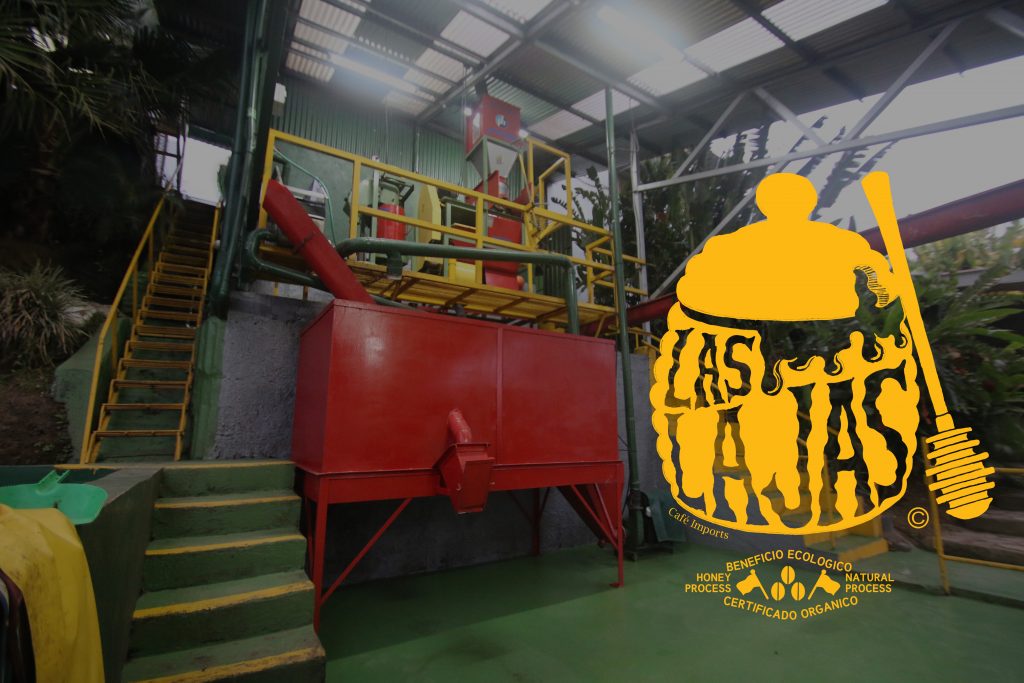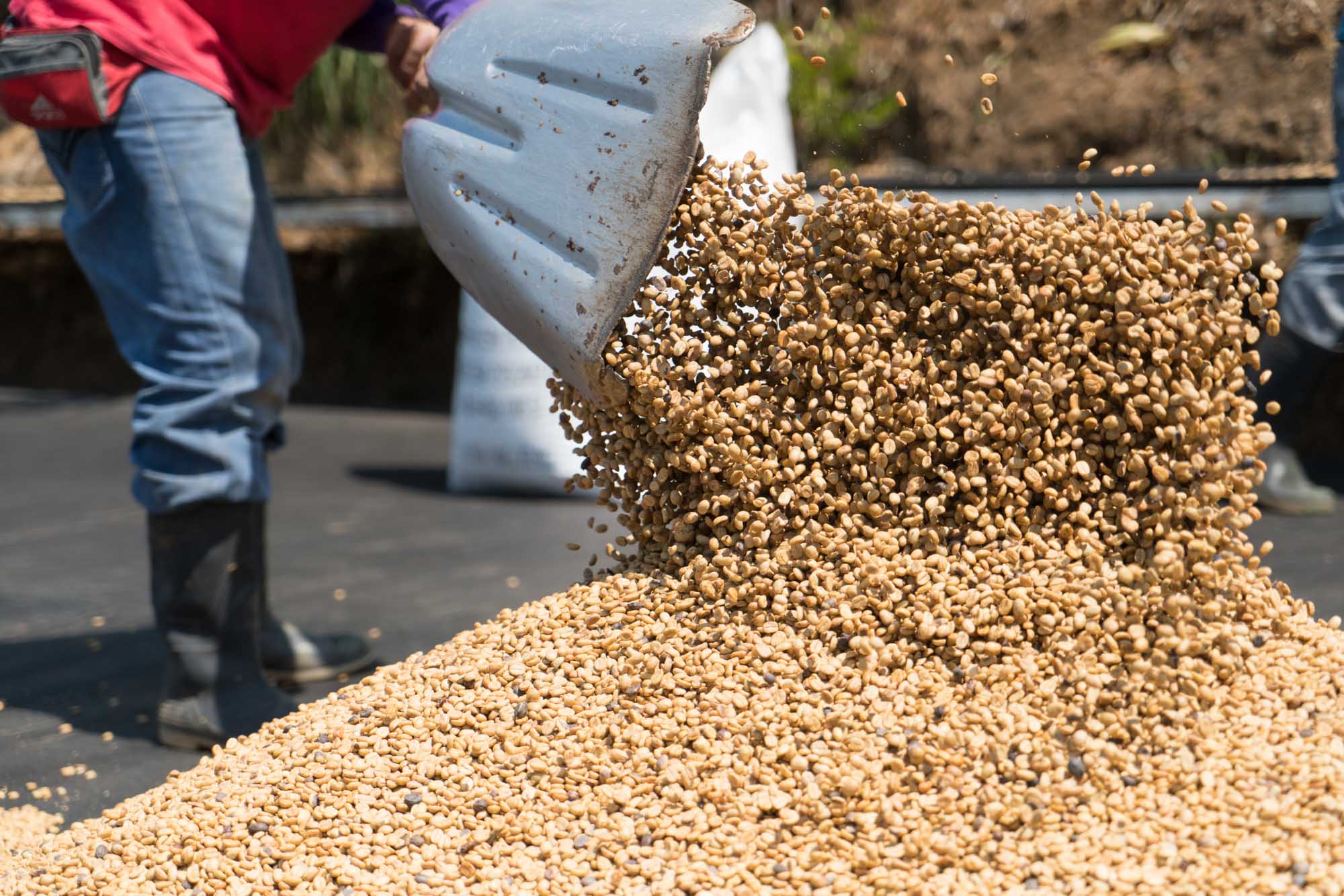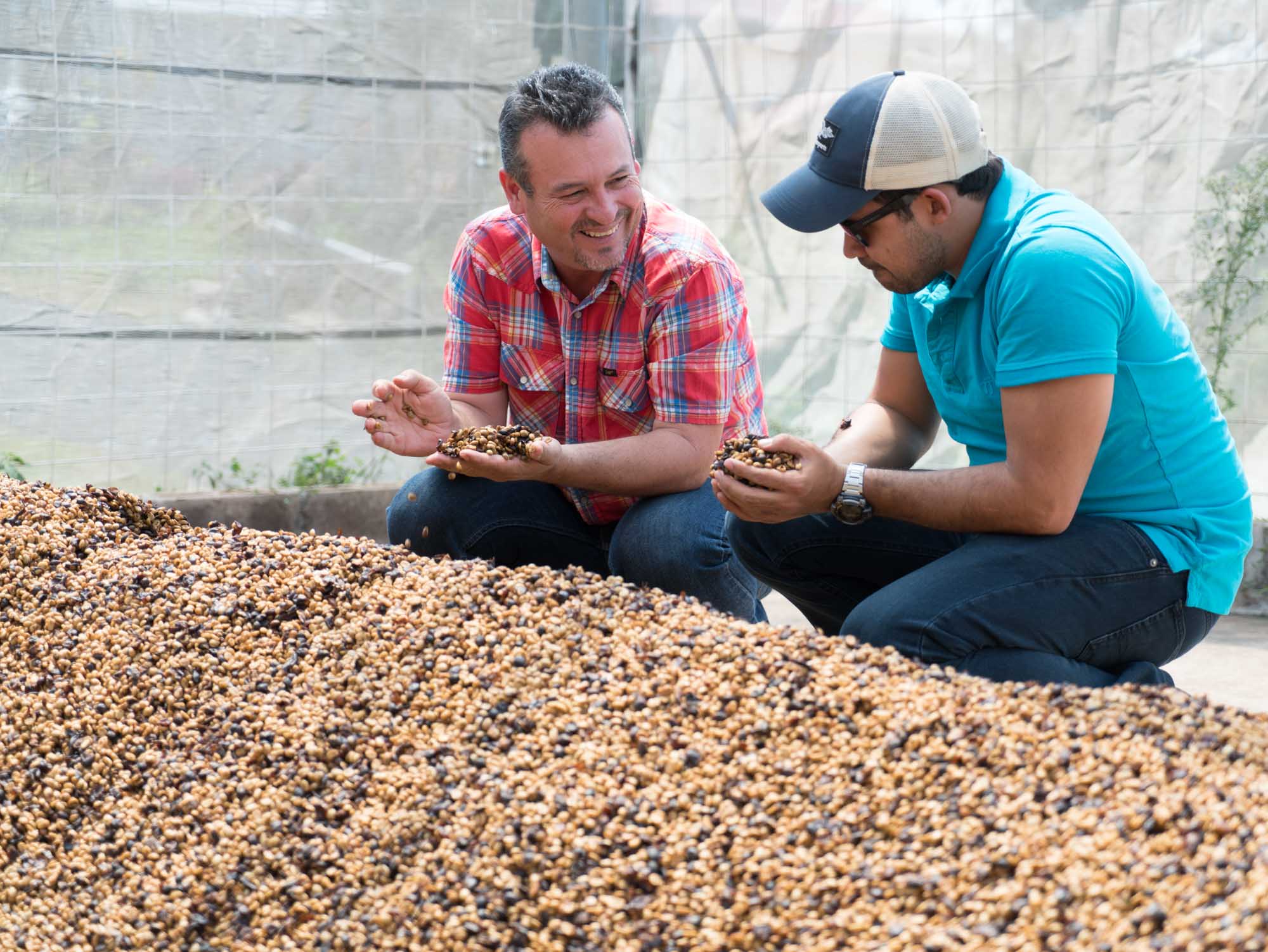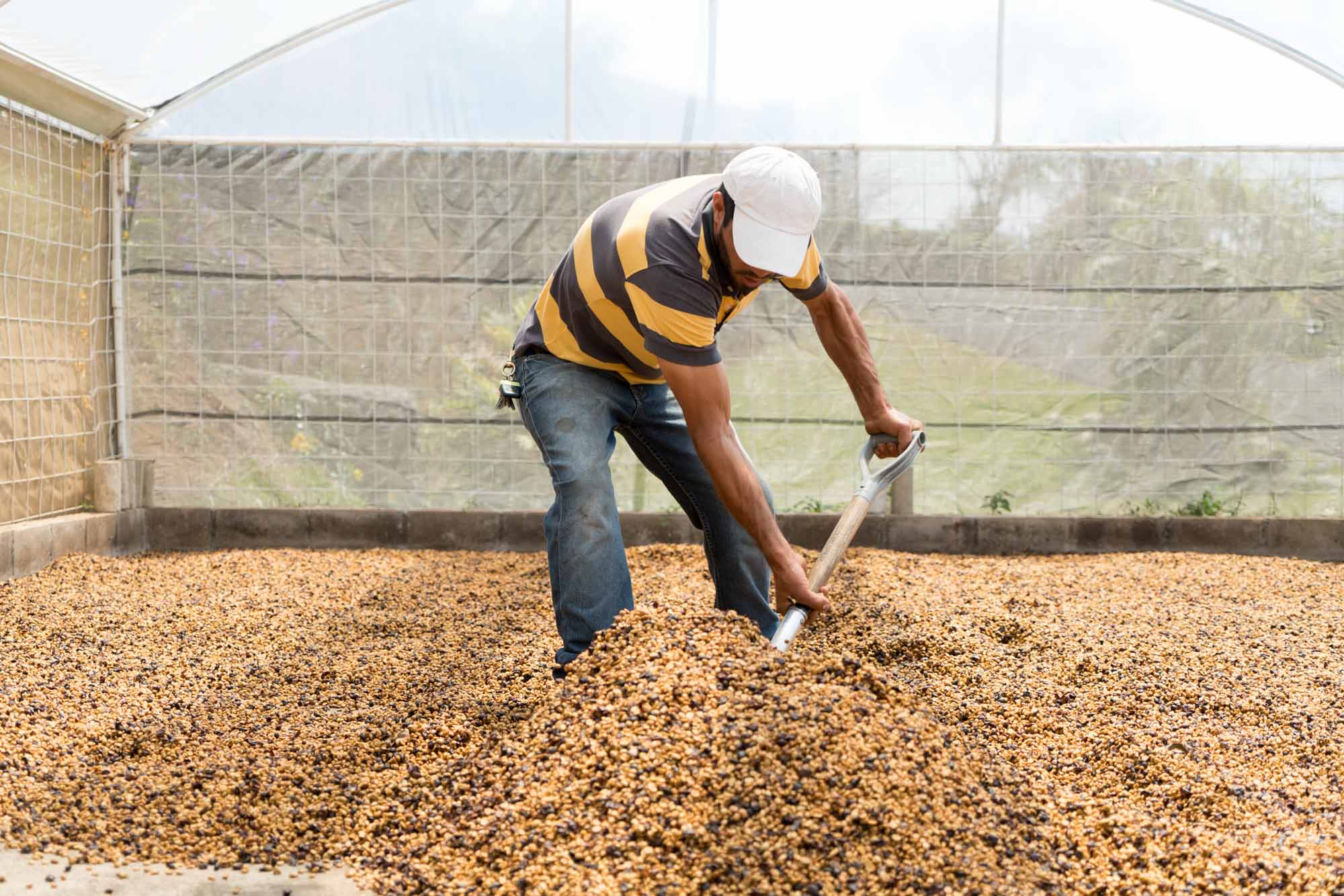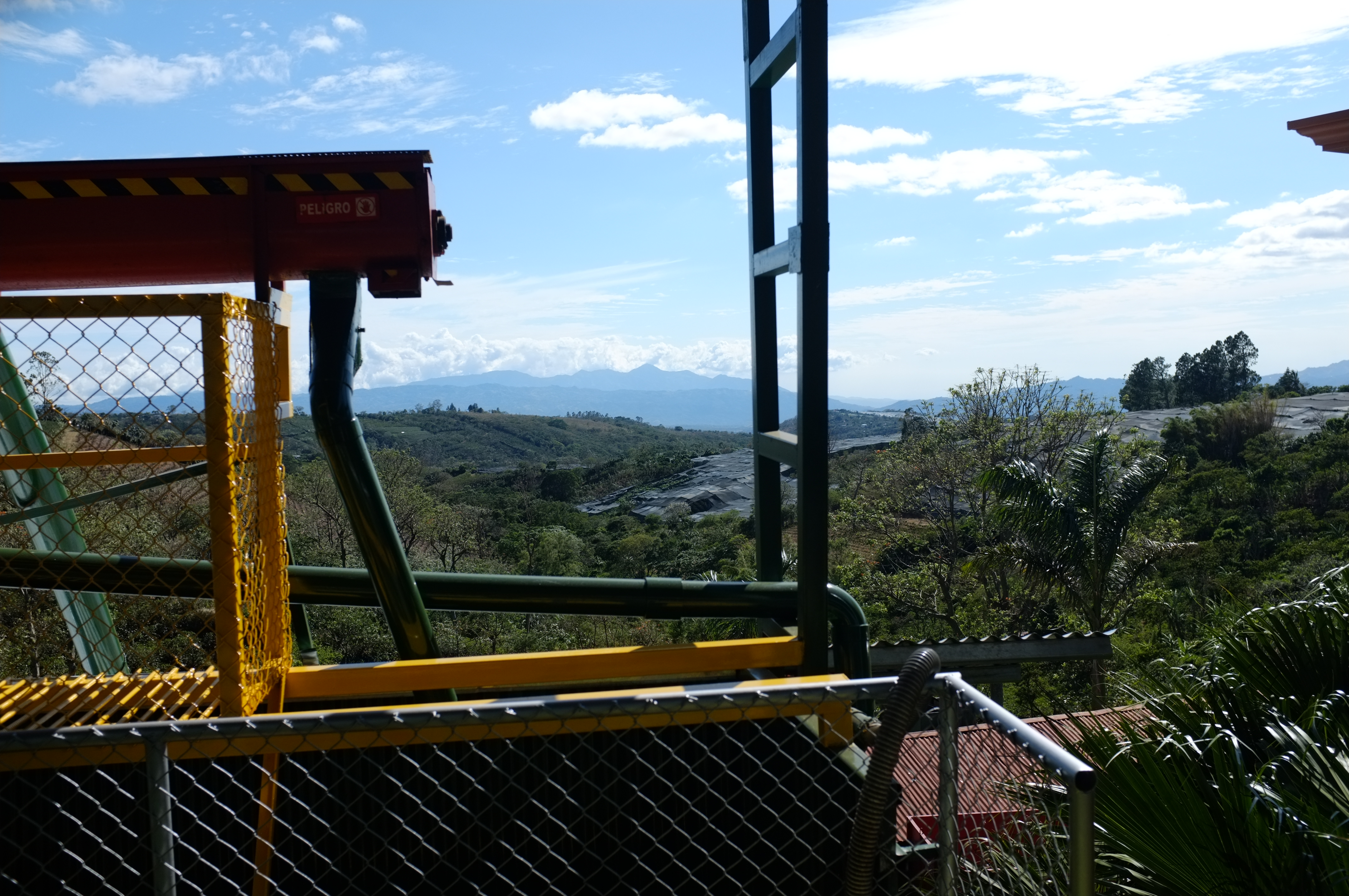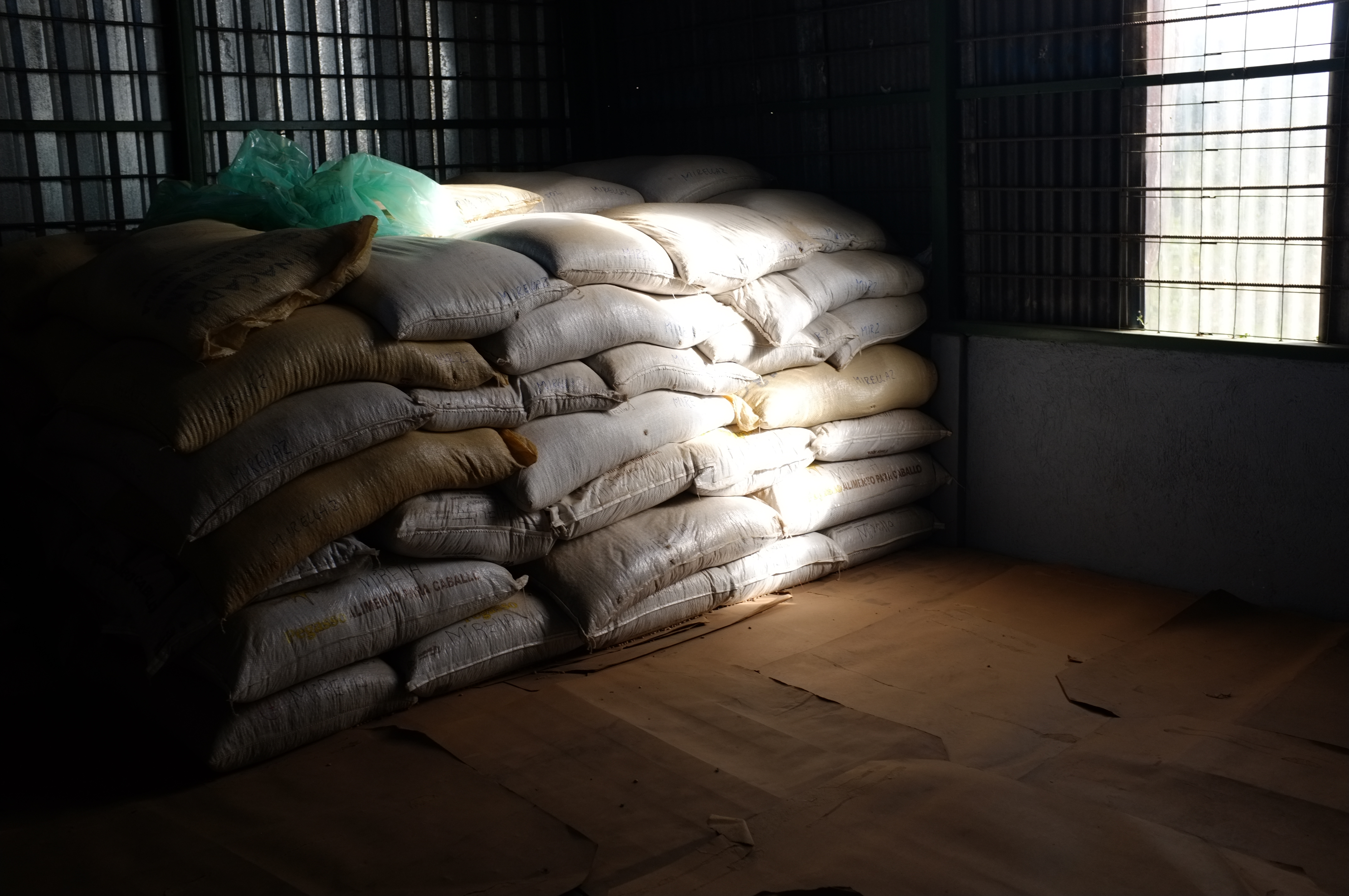Costa Rica – Organic – Perla Negra Natural – Las Lajas Micromill – Finca La Julia B10824
Specs:
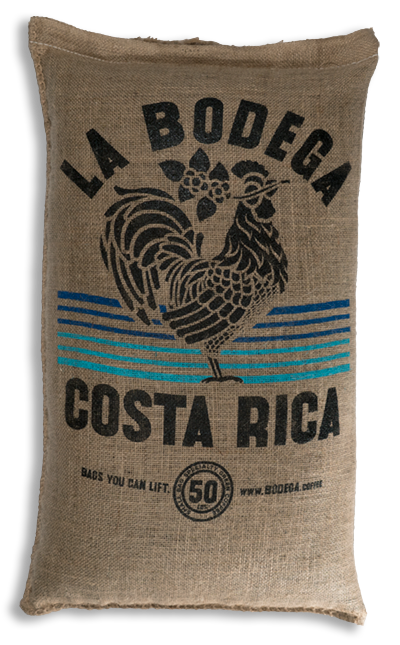
Source:
Costa Rica
Region:
Sabanilla de Alajuela, Central Valley
Farm:
Finca La Julia
Variety:
Villa Sarchi, Caturra
Altitude:
1450 masl
Processing:
Natural
Program:
Microlot
Notes:
"Lots of chocolate and cherry flavors with winey acidity, very sweet and winey with a heavy creamy mouthfeel."
Score:
Price/Bag:
$7.71 per lb
$385.50 per bagOut of stock
Background:
Oscar and Francisca Chacon of Las Lajas Micromill are third-generation coffee producers who are committed to quality and innovation, and are probably best known for being among the first to produce honey coffees in Costa Rica. The micromill is also one of the only certified-organic mills in the area, and the Chacons take their environmental impact very seriously.
As average temperatures rise and the weather patterns change, the Chacons are considering adding more shade trees to their farm to moderate the heat, and to add irrigation systems to combat the inconsistent rainy seasons Costa Rica has had the past few years. To mitigate their water usage, Don Oscar uses a Penagos demucilaginator to depulp his coffee, and since the coffees are all natural or honey process, very little water is used at the mill.
Harvesting and processing are overseen with great care by both Don Oscar and Doña Francisca: During the harvest, Doña Francisca will measure the Brix of the cherry to determine the optimal ripeness, and picking will begin when the Brix reads about 22°. Harvesting by Brix reading is also helpful as newer varieties sometimes ripen to different colors: Using the refractometer helps keep the harvest at uniform ripeness, which is key when producing high-quality naturals and honeys.
Las Lajas began producing honey coffees in 2008, after an earthquake cut off the mill's access to water for several weeks. Don Oscar had heard that in Brazil and Ethiopia they use pulped-natural and natural techniques to process coffees, so he tried it with his harvest that year. Around that same time, Café Imports founder and president Andrew Miller visited the area, and was so impressed by the flavor of the Chacons' coffee he became one of the first buyers of the new process. Don Oscar believes that just as the roast profile will change the flavor of a coffee, the drying curve also has an impact. He wants the drying to happen slowly, which means that production is necessarily limited.
The Chacons produce several different types of honeys and naturals: For their honeys, 100% of the mucilage is left on the coffee, and the coffee is dried in different ways. The Chacons determine which process to use based on the weather on the day the coffee is harvested.
- Yellow Honey: Coffee is turned hourly on raised beds.
- Red Honey: Coffee is turned several times a day on the beds, but not as frequently as for yellow honey.
- Black Honey: The coffee is only turned once per day.
The Chacons also do three natural processes.
- Perla Negra: Dries directly in the sun for 10 days, rotating constantly, then transferred to bags and left for 2–3 days before being finished on the raised beds.
- Alma Negra: Drying starts on the patio, then the coffee is piled overnight and spread out in the sun during the day.
- Diamonda Negra: This new process is dried completely in piles in the greenhouse.
Recommendations
-

Bolivia – FTO La Paz – La Cooperativa Corpus Cristhy Illampu R.L – Red Catuai & Typica – FLO ID 3645
$ 5.14 per lb Add to cart -

Brazil – Organic Cascara – Cascara Tea – Espirito Santo – Fazenda Camocim – Biodynamic
$ 15.87 per lb Add to cart -

Burundi – Microlot – Gakenke – Kayanza – Washed
$ 6.05 per lb Add to cart -

Colombia – Decaf Origin Select – EA Decaf de Cana – Huila
$ 5.27 per lb Add to cart
